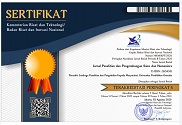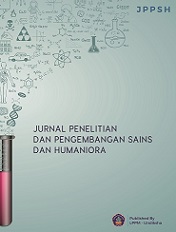The Effect of Mall Strategy Integrated with Padlet Towards Students’ Reading Comprehension
DOI:
https://doi.org/10.23887/jppsh.v3i2.21281Keywords:
reading, MALL, PadletAbstract
The research aimed at investigating the significant difference on students’ reading comprehension between students taught using Mobile Assisted Language Learning (MALL) strategy integrated with Padlet and students taught using conventional teaching strategy. This research was quasi-experimental utilizing post-test only control group design. The population of this research was tenth-grade students in SMA Negeri 4 Singaraja. The sample of this research were 73 students consisting of 35 students from X BB 1 as experimental group and 38 students from BB 2 as control group. The sample were chosen using cluster random sampling technique. The data collection in both groups were done through post-test. The obtained data were analyzed using descriptive and inferential statistical analysis. The result of descriptive statistics analysis reveals that the mean score for experimental group is higher than control group (78.03 > 73.39). Furthermore, the result of inferential statistics analysis through t-test shows that the significant value of tobserve is higher than tcritical value, which is 2.270 > 1.666 (df = 71, α = 0.05). Thus, it indicates that there is a significant difference on students’ reading comprehension between students taught using Mobile Assisted Language Learning (MALL) strategy integrated with Padlet and students taught using conventional teaching strategy.Downloads
Published
2019-10-08
Issue
Section
Articles
License
Authors who publish with the Jurnal Penelitian dan Pengembangan Sains dan Humaniora agree to the following terms:
- Authors retain copyright and grant the journal the right of first publication with the work simultaneously licensed under a Creative Commons Attribution License (CC BY-SA 4.0) that allows others to share the work with an acknowledgment of the work's authorship and initial publication in this journal.
- Authors are able to enter into separate, additional contractual arrangements for the non-exclusive distribution of the journal's published version of the work (e.g., post it to an institutional repository or publish it in a book), with an acknowledgment of its initial publication in this journal.
- Authors are permitted and encouraged to post their work online (e.g., in institutional repositories or on their website) prior to and during the submission process, as it can lead to productive exchanges, as well as earlier and greater citation of published work. (See The Effect of Open Access)










